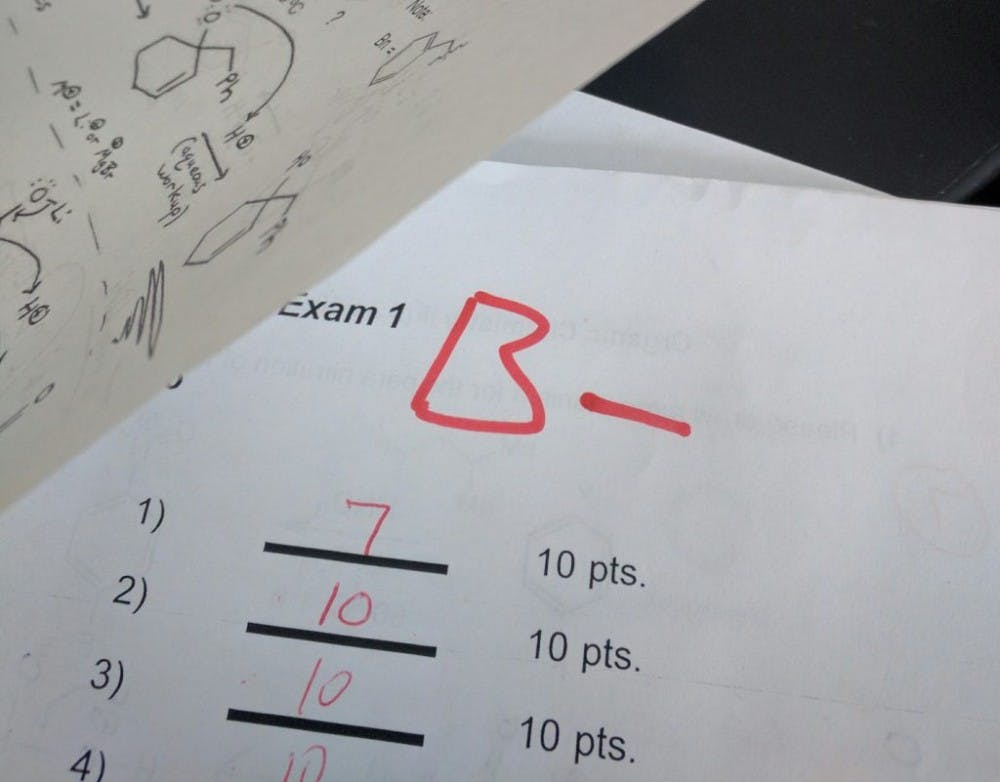At the end of last semester the University announced that covered grades, officially known as the first semester grading policy, will be discontinued in 2017. This prompted criticism from two dozen student groups, which formed a coalition named Re-Cover Hopkins to protest the change and the University’s lack of transparency in finalizing the decision.
Representatives from Re-Cover Hopkins say that planning for the fall will begin when students return to campus.
The University’s policy change and student dissatisfaction reached a local and national audience with coverage from The Baltimore Sun, Fox News, The Washington Post, USA Today, Business Insider and The National Review.
Senior Tiffany Onyejiaka wrote in an email to The News-Letter that the national media was quick to disregard student concerns, especially regarding how the policy was changed.
“I think that covered grades was greatly mishandled by media. People seemed to focus on the supposed coddling of college students without taking time to analyze that people’s frustrations were regarding the fact that a long holding structure of the Hopkins educational system was changed without notice or input from current students at the university,” she wrote.
Junior Mieraf Teka was especially disappointed by how a Fox News panel discussed student protest over the University’s decision.
“It was truly disappointing to see a group of educated women make judgments and diminish a problem that is way beyond laziness. Covered grades are important in ensuring students acclimate to the Hopkins environment while maintaining their mental health as well as establishing good study habit,” Teka wrote in an email to The News-Letter. “It was very frustrating seeing outsiders mock students without taking the time to truly understand.”
In response to the decision at the end of last semester, the coalition sent demands to the University and interrupted a scheduled meeting of the Homewood Academic Council (HAC), which made the decision. The Student Government Association (SGA) launched a referendum on whether to support or disapprove of the change.
The referendum included a survey from the Re-Cover Hopkins movement to collect data on the impact of covered grades. This was compiled into a 27-page report published on the coalition’s Facebook page.
SGA Executive President Charlie Green said that the executive board will announce the referendum results at the beginning of this semester. They will then work with the new SGA members and Re-Cover Hopkins on how best to proceed.
“The plan for SGA is to gauge student interest on this issue in the Fall and then push the administration accordingly. We have not done much over this summer because we are not sure how students will be feeling regarding this issue when we come back to school and also how the new senate wants to deal with it,” Green wrote in an email to The News-Letter. “The SGA is very committed to listening to Re-Cover Hopkins and the rest of the student body.”
Junior Johns Hughes, president of Active Minds, will urge the coalition to demand more than just a town-hall discussion.
“Personally, what I want to focus on... is really pushing for the Council to delay the implementation until a period of formal public comment can be held. Not just a one-time town hall, but a period during which official written comments are solicited with public hearings to discuss those comments,” he wrote.
Hughes further mentioned the importance of soliciting the experiences of this year’s freshmen.
Students disagree about whether covered grades is a beneficial policy. But the survey compiled by Re-Cover Hopkins shows that a majority of its 537 respondents disagreed with the decision.
Junior Linda Horn noted that the policy is helpful for students in adapting to the rigorous academics at Hopkins.
“I am a student who the Homewood Academic Council thinks the policy ‘hurts’ because I performed well my first semester here,” Horn wrote in an email to The News-Letter. “But that doesn’t mean I think the policy should be removed, because it is helpful to many students in adapting to both a college lifestyle and workload for the first time. It helped combat the prevalent ‘sink or swim’ culture on campus that is detrimental to students.”
Whether they agree or disagree with removing covered grades, many students believe that the University should have solicited more student involvement in making the decision.
Junior Jesse Rines is not in favor of how and when the University announced the change, but agrees that it should end covered grades.
“If the goal of covered grades is to help freshmen adjust to college, the worst way to do that is to get them used to a study schedule that doesn’t actually put pressure on them to learn the material,” he wrote in an email to The News-Letter. “[C]overed grades simply delay the actual stress of Hopkins by one semester, exacerbating the effects of Hopkins’ mental stress by reinforcing bad study habits in the first semester.”
In defense of keeping covered grades Re-Cover Hopkins cites Hopkins’ academic rigor, an inadequacy in current academic and mental health support networks and that removing covered grades disproportionately harms students of marginalized communities.
The University, however, defended its decision saying that when covered grades were implemented in 1971, the University focused more on its graduate students, so covered grades were necessary to support undergraduates. University administrators claim the development of programs, such as PILOT and MAPP, give students a better support network.





